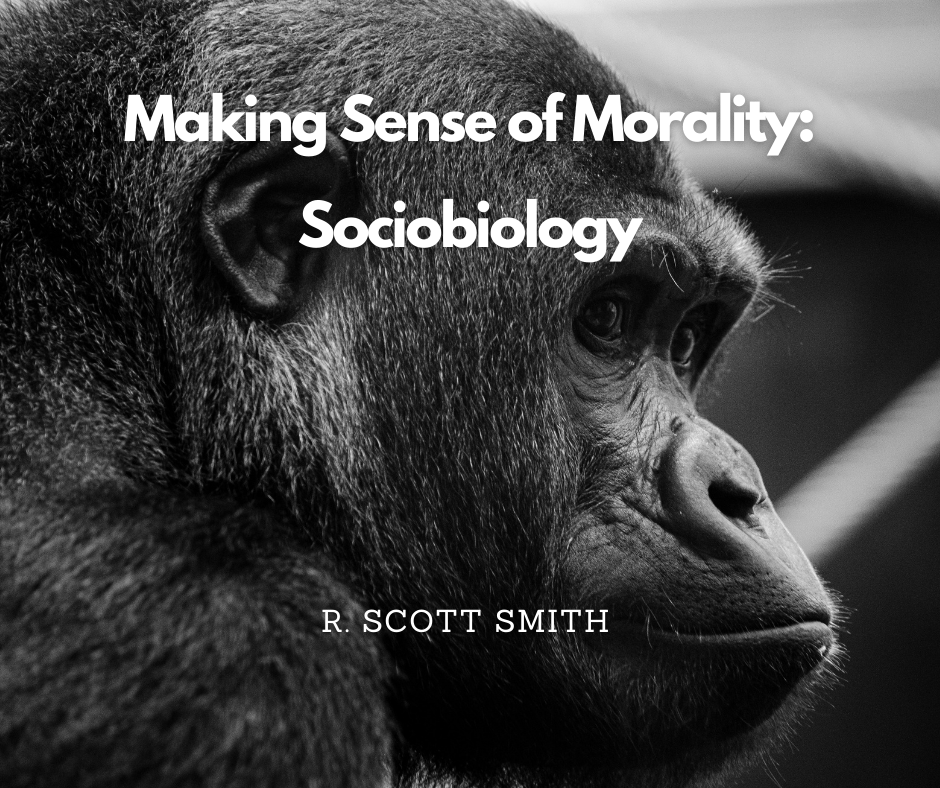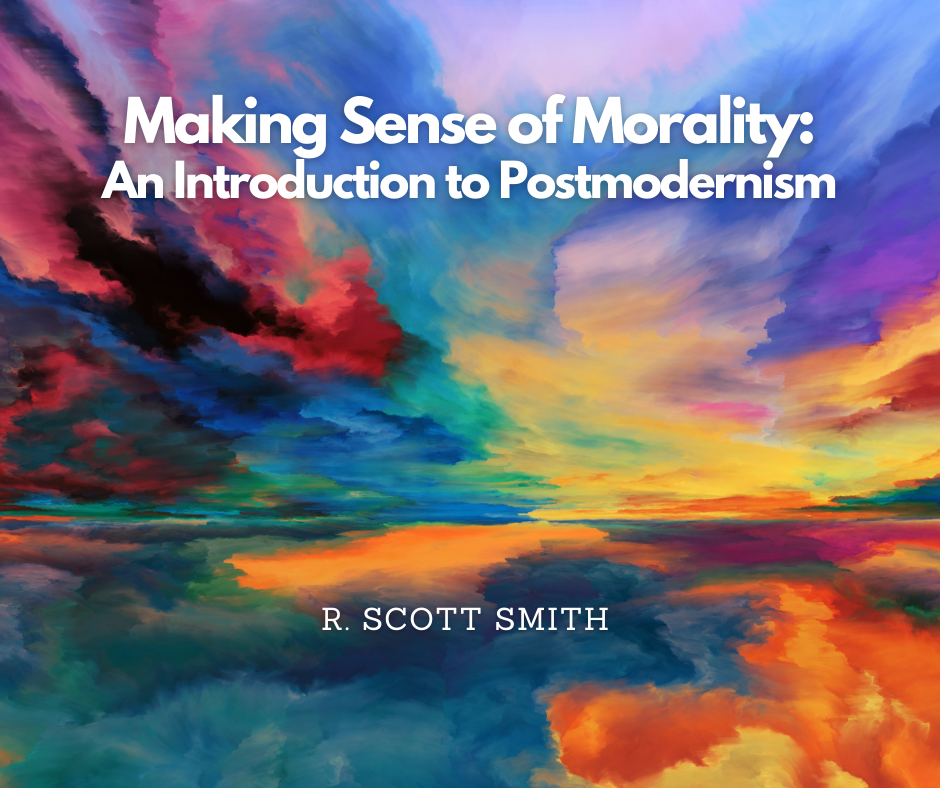Moral Apologetics & Christian Theology
/For some while now I have had the thought that it would be worthwhile to explore the connection between moral apologetics and theology. I have had occasion to touch on this matter here and there, but never anything remotely exhaustive. It remains in my mind a project to pursue for later—resonances of the moral argument(s) with such theological categories as ecclesiology and Christology, eschatology and soteriology, pneumatology, theological anthropology, and theology proper. In this short piece today, I’m going to just tip my toe in such a project by using something of a traditional four-fold distinction that cuts across a variety of theological concerns.
From the earliest chapters of Genesis we find that what gets broken and is need of being set right are the following facets of our existence: ourselves, the creation, our relationship with others, and our relationship with God. John Hare’s forthcoming book on theistic ethics—the third in his trilogy (after The Moral Gap and God’s Command)—is structured in a similar four-fold way: specifically, the unity we seek in life, with the creation or environment, with other people, and with God. And R. Scott Rodin’s excellent book on the steward leader similarly couches the discussion in terms of four areas in which leaders foster robust health: in the self, with others, with creation, and with God. Categories of self and life might seem different, but since I see the biblical discourse of life primarily in terms of the abundant, kingdom life for which God designed each one of us, it seems to me that they are inextricably linked. So let’s quickly canvass each in turn.
In terms of the self, and the sort of life for which we were made, there are three conceptually distinct aspects to our salvation. There is justification, which puts us right with God; this largely involves our forgiveness for falling short. C. S. Lewis said the key to understanding the universe resides in recognizing that there’s a moral standard and that we fail to meet it. This introduces the need, first, for our forgiveness, and according to Christian theology God has made provision for our forgiveness in the death and resurrection of Jesus. The second dimension of salvation is sanctification, the gradual process by which we are not just forgiven, but actually changed and transformed into the likeness of Christ. This introduces what John Hare calls the performative dimension of moral apologetics—how we can cross the gap between the best we can do, morally speaking, and the moral standard. If we are obligated to meet the standard, but are unable to do so on our own, Augustine thought that this was to show us our need for God’s grace to be changed. The culmination of salvation is glorification, the point at which, by God’s grace, we are entirely conformed to the image of Christ; we are made perfect, altogether delivered from sin’s power and consequences. Christian theology thus makes sense of our need for forgiveness, our need to be changed, and ultimately even our desire to be perfected.
Immanuel Kant’s argument for the afterlife was predicated on his thinking that a “holy will” was the province of God’s alone, and that it would forever reside beyond our reach. We would thus need eternity to approach it asymptotically (ever closer but never there)—because it’s a process that will never be completed. He was both right and wrong, I think. Contra Kant, Christian theology says that we will indeed by God’s grace be entirely conformed to the image of Christ, so there is a destination at which the regenerate will arrive. But I suspect he was right in an important sense to think of our eternal state as involving more of a dynamic picture than a static one. Once glorified, our growth won’t cease; indeed, completion of “the good work within us” will mark the chance for us to live as we were fully intended with all the obstructions removed.
Sometimes there is debate over whether morality will go away in heaven. My guess is that morality in Kant’s sense certainly will; talk of rights and duties will pass away. But they will be replaced by something far grander—gift and sacrifice, as George Mavrodes would say. Or think of rights and duties as the mere anteroom in a grand castle or cathedral that represents morality. Life in that place will be as it should be: life among its towering spires, where self-giving love is the norm. We are told, in fact, that the glory to come is something so wonderful we can scarcely imagine it.
Lewis sometimes likened the whole quest of morality to a fleet of ships. This fleet must consist of vessels that are individually seaworthy. It must function cooperatively, with all vessels navigating their ways without crashing into one another. And this fleet must have a destination. The first and third requirements—individual seaworthiness and reaching a destination—are closely connected to the individual’s moral trajectory. By God’s grace we are made seaworthy: we find forgiveness for our invariable shortcomings, grace to be radically transformed, grace by which to find meaning in life and our vocations of purpose, and grace ultimately to become the wholly distinctive expressions of Christ God designed us to be.
Lewis’s middle requirement in the fleet example pertains to not bumping into others, and this is the second of the aforementioned four theological constraints. In fact, nowadays, morality is often deflated in the minds of many to pertain just to this feature of ethics, but in fact it is only one of the four parts. Morality rightly understood and practiced does indeed lead, in general, to more harmonious relations with others; this is one reason why Christ followers are called to be ministers of reconciliation. Indeed, this is arguably also part of the goal or telos of humanity: that the barriers of fellowship between people would be removed and we would learn to love another and forge deep relationships of mutual care with one another. Indeed, in Christian theology, after the most important commandment, which we’ll get to in a moment, the second most important command is that we love our neighbors as ourselves. And we are pretty much told that we can’t discharge the most important command without taking the neighbor-love command with dreadful seriousness. The communal aspects of sanctification remind us that the implications of morality are not a simply individualist affair; waging war on systemic evils, promoting justice, feeding the poor, opposition to slavery—all of these are aspects of the moral life expansively and communally construed. Paul Copan is especially effective at highlighting this historical dimension of the moral argument by chronicling a myriad of ways in which Christians have traditionally led the way in women’s suffrage, building orphanages, opposing foot-binding, and the like.
In terms of the third theological category—unity with creation—two salient connections with moral apologetics immediately come to mind, namely, moral duties we have to care for the creation of which we have been made stewards, and treatment of animals as the sacred creatures they are. In his Lectures on Ethics Kant tried to spell out how our duties to animals are rooted in our obligations to fellow human beings, writing that if a man treats his dog well, regularly feeding and watering it and taking it for walks, this man is probably going to be kinder in his dealings with human persons. This is why Kant says, “We can judge the heart of a man by his treatment of animals…. Tender feelings towards dumb animals develop human feelings towards mankind.”
Although that is likely true, I can’t help but be a bit dissatisfied by this analysis alone. It seems sounder to say we have an obligation to God to treat his creation properly, which includes animals, and it’s even more pressing we treat animals well because they are capable of feeling pain. It’s almost become cliché to remind us all that dominion isn’t domination. Intentionally and needlessly inflicting pain on animals, for example, is cruel disregard for God’s creation—and a sin against God. We should care about the experience of animals and want them not to suffer needlessly, and not just for instrumental reasons. I count the inability of a number of naturalist accounts to justify believing we have obligations toward animals a deficiency—even if it’s true that animals don’t have rights (a question on which I’m currently agnostic).
Elsewhere I have repeatedly made it clear that I’m eminently open—with N. T. Wright, John Wesley, and C. S. Lewis—to the idea that we will see animals in heaven. It’s not a nonnegotiable conviction of mine, but it’s a reasonable inference, I think, if we take seriously the notion that the work of Christ redeemed the entirety of the created order, of which animals are a vital part. It is actually quite illuminating to peruse the full range of biblical teachings about the animals.
Fourthly, finally, and most centrally, Christian theology gives pride of place to reconciliation with God—and not just reconciliation, but a relationship of all-consuming love for and relationship of intimacy with God. Since there are principled reasons to think of the ultimate good in personalist terms (as nothing less than God himself) and the ultimate good for us in such terms as well (nothing less than the beatific vision), I can’t help but think of the telos of humankind and the culmination of salvation in the Christian order of things through the lens of Goodness itself. The deontic family of terms, discourse about what’s obligatory or permissible, might well pass away when all things are made new, but the Good and the Beautiful will be on full display and to be enjoyed forever. That Christianity teaches that the most important commandment of all—a necessary and eternal truth—is love of God with all of our heart and soul, mind and strength, puts this dimension, this unity, this relationship at the core of reality.
Morality here and now involves just the first, fledgling lessons in learning the dance steps of the Trinity. For this reason Lewis once wrote these words: “Mere morality is not the end of life. You were made for something quite different from that…. The people who keep on asking if they can’t lead a decent life without Christ don’t know what life is about; if they did they would know that ‘a decent life’ is mere machinery compared with the things we men are really made for. Morality is indispensable: but the Divine Life, which gives itself to us and which calls us to be gods, intends for us something in which morality will be swallowed up.”
David Baggett is professor of philosophy and Director of the Center for Moral Apologetics at Houston Baptist University.











































